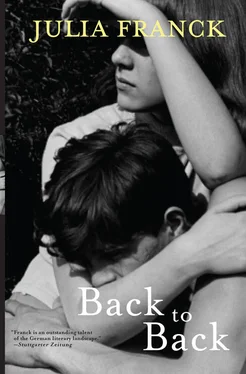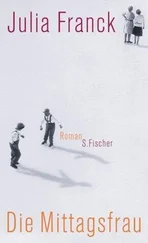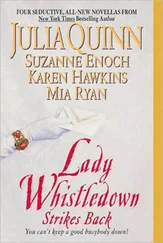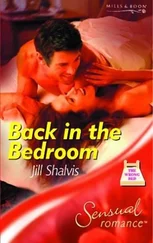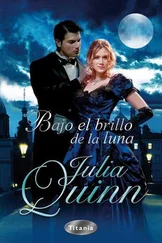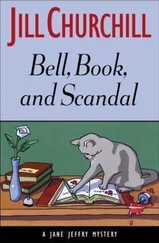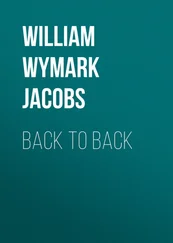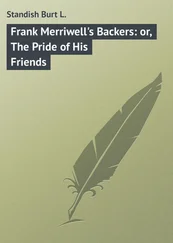Severely, Ella leaned back and whistled dismissively. You and your gun. No, our father didn’t have a gun. He did sometimes carry his easel over his shoulder. After all, he was a painter.
What did he paint?
He liked painting rocks and olive trees best. Funny, he never painted the sea. I think he didn’t like Caspar David Friedrich. When he and Käthe were living on Sicily he must have kept turning away from the sea.
What’s he supposed to have painted in the war? Battles?
No, he was too nice for that. Our father was a sensitive man. A fine gentleman with fine brushes. She took a strand of her hair and tickled Thomas’s face with it until he turned away. He painted the soldiers. For their mothers. He painted pictures for the soldiers that they could send home. If they had sweethearts they sometimes needed two pictures, one for their mother and one for their sweetheart.
Did he paint murder and death?
Ella turned round and pinched Thomas’s arm. What makes you think of that?
If he painted soldiers at the front they were all either murderers or dead. Thomas had to laugh with the shock of it when it suddenly occurred to him that this version of their father could have seen his models as heroes.
Ready to kill, perhaps. But I think he painted the death out of their faces. Ella assumed a blissful expression. I saw a few of his last drawings in Käthe’s studio, and none of them looked like a murderer or a hero. It’s quite an art to do that in the middle of the war, don’t you think?
I don’t know. Maybe he was a coward. The idea was painful, but it could hardly be avoided.
Our father? A coward? Now Ella punched him with her fist. It hurt, and Thomas raised his arm.
It was enough to satisfy him to see Ella duck away. It would have been brave of their father to paint the soldiers as murderers. It would also have been brave to stay with Käthe in defiance of his call-up papers, to go against everyone’s expectations. What was he supposed to do at the front? What did he want to do there?
Get killed, maybe? Ella whispered thoughtfully. Have you seen those drawings? Perhaps he was doing them on a production line. Photographs and chemicals to develop them are expensive and sensitive, his charcoal could show everything, his pencil too, soldier after soldier. If it hadn’t been for the uniform they’d have been nice brothers and nice sons and nice husbands.
What do you mean, nice husbands? Thomas would have liked to understand what Ella really did mean. Perhaps he could be a nice man some day, the kind of man his father was, perhaps. But Thomas didn’t even know if that was a good thing.
You know what I mean. Men who didn’t want the war.
You’re crazy, Ella. Everyone wanted the war.
Not our father, he was made to go. He hid away in Italy with his beard for too long. They went looking for him, his parents wanted him to give himself up and go to fight.
So then he joined up. . How important to their father had his parents’ opinion been, the opinion of the mindless society to which he had returned from his romantic Italian refuge? It was idiotic, thought Thomas, but he didn’t say anything. He knew that Ella would defend their father, would find reasons for what he did. She loved their dead father, and he was easy to love. Odd that you could go on leave from the front, isn’t it? Someone stands there shooting, or painting people, and then he looks at his watch and says: time to knock off work, I’m going on leave for three weeks.
That was before you were born. I was sitting outside the house in the meadow, catching beetles.
Now Thomas leaned harder against Ella; that was part of their ritual, a gesture of humility in case of doubt. You were only one then, Ella, how could you know about that? It was only a game when Thomas asked her that, he liked this story and had already heard it hundreds of times. It was always the same story, so it must be true, even if Ella had been only a year old when he was born.
I caught the beetles and ate them. Honestly. There was a tickly feeling in my mouth when he appeared among the firs. I called out to him.
How?
Pa-pa! Ella relished the sound of the two syllables, Papa, Papa! She repeated it at length, longingly, just as she must have called to him at the time. Her voice was a little girl’s voice, there were tears of joy in her eyes, of happiness at seeing him again. Thomas looked over his shoulder; Ella had turned her own head that way, and he could see her, little Ella who had known all this, just as she was. What a wonderful father it must have been who came striding up the mountain. Thomas saw Ella’s love, he wanted to believe in it and suddenly find himself sharing it.
Did you know who he was at once?
Of course. Ella’s eyes were sparkling with emotion, she was carried away by her story, by what she called memory; after all, no one else came up that mountain for months on end. The only person we were waiting for was Father. Thomas picked a small leaf off the elm tree and dried Ella’s tears.
Back to back, Ella ordered, and they turned their backs to each other again. It was up to Thomas to ask a question now.
What did Käthe eat, did she just eat beetles too?
On Sundays she went down to the farmyard. No one must see her. They were all at church. There was bread, a can of milk, some vegetables, and sometimes a few potatoes left ready for her on the table outside the house. Ella sniffed: mmm, it was good bread, the farmer’s wife had baked it herself from stoneground rye and there were little linseeds in it, it smelled delicious. I always got the first bit of crust. To stop me crying.
Didn’t Father sometimes send the farmer money?
Of course, the farmer didn’t like strangers and people hiding from the authorities. He didn’t mind whether she was Jewish or a communist, she had no papers and no marriage certificate. He didn’t ask to see her papers, but he got money. When she came to fetch the milk and the bread, Käthe sometimes left pictures on the table for him, pictures of our hut and the fir trees — that was all she had to give. After the war she found a potter’s wheel that no one was using any more down in the village, and dragged it up to the hut. She knew how to make pottery, she sold the dishes and jugs in the market.
Do you remember the spiced biscuits? The first time she took us to school, and afterwards she sent us to the marketplace and the woman in the blue-and-white apron gave us a spiced biscuit each?
Ella nodded. One for the little girlie, one for the little boy, they said in chorus; it was their shared memory. How often, over the last few years, they had reminded each other of the woman in the huge, blue-and-white apron? To them, she was the quintessence of rustic kindness.
I remember about the hare — Ella’s eyes sparkled — I remember how one day she brought a hare. .
Thomas put both hands over his ears, ready to shut out all sound entirely if the story turned out as badly as Ella’s chirping voice suggested.
. . put the skin out to dry in the sun. . cooked with thyme. . with bacon. . pepper. The roast smelled so delicious I waited by the stove to be the first to get a bit. Well, she told me as she took the roast out of the oven, because you’re so greedy we’ll put it out on the balcony in front of the door, and wait until tomorrow, tomorrow is Sunday, we’ll have a Sunday roast! Ella turned indignantly. She was asking for Thomas’s sympathy.
Yes? His hands flapped, there was a scared look in his eyes.
What’s the matter, don’t you want to hear the story?
Yes, yes, I do, begged Thomas, but he was afraid.
Well, next morning I went outside the moment I woke up. And there was the hare, all eaten except for its bones, and the dried roast meat that still had a shine where it stuck to the paws.
Читать дальше
